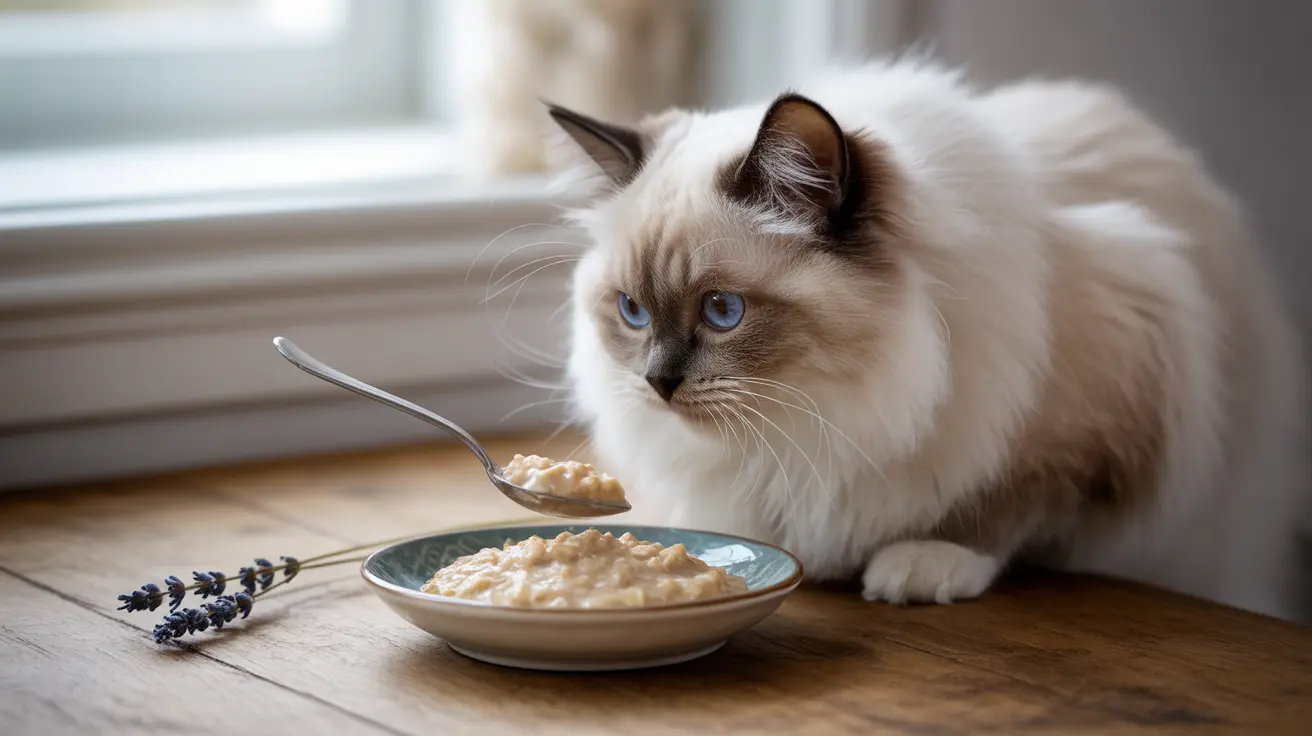If you've ever wondered whether sharing your morning oatmeal with your feline friend is safe, you're not alone. While cats are obligate carnivores who primarily need meat-based proteins, oats can actually be a safe occasional treat when properly prepared and portioned.
In this comprehensive guide, we'll explore everything you need to know about feeding oats to cats, including benefits, risks, and proper serving methods to ensure your pet's safety and health.
Understanding Cats' Nutritional Needs
Before diving into the specifics of oats, it's crucial to understand that cats are strict carnivores. Their bodies are designed to process and utilize nutrients from animal sources, with limited ability to digest plant-based foods. This biological reality should guide any decisions about incorporating oats into their diet.
Benefits of Oats for Cats
When served properly, oats can offer several potential benefits to cats:
- Digestive support through dietary fiber
- Anti-inflammatory properties from natural antioxidants
- Potential aid in weight management
- Soothing properties for sensitive stomachs
How to Safely Prepare Oats for Cats
The preparation method is crucial when feeding oats to cats:
- Cook the oats thoroughly with water (never milk)
- Serve plain without any sweeteners or seasonings
- Allow to cool to room temperature
- Start with small portions to test tolerance
Proper Portions and Frequency
Moderation is key when feeding oats to cats. A safe serving size is typically no more than 1-2 tablespoons of cooked oats, offered no more than once or twice per week. This ensures oats remain a treat rather than a dietary staple.
Potential Risks and Considerations
While oats can be safe for cats, there are several important considerations:
- High caloric content can contribute to weight gain
- May reduce appetite for essential meat-based proteins
- Some cats might experience digestive sensitivity
- Risk of nutritional imbalance if overfed
When to Avoid Feeding Oats
Some cats should not be given oats, including:
- Those with grain allergies or sensitivities
- Cats with diabetes or weight issues
- Pets on specialized veterinary diets
- Cats with certain digestive conditions
Frequently Asked Questions
Can cats safely eat oats or oatmeal as part of their diet?
Yes, cats can safely eat plain, cooked oats in small amounts as an occasional treat. However, oats should never replace their primary meat-based diet or exceed 10% of their daily caloric intake.
How should oats be prepared before feeding them to cats to avoid digestive issues?
Cook oats thoroughly using water only, avoid milk or additives, and serve plain at room temperature. Never add sweeteners, salt, or human food toppings.
What are the health benefits of giving cats a small amount of oats occasionally?
Oats can provide dietary fiber for digestive health, contain anti-inflammatory properties, and may help with weight management when properly portioned. They also offer some vitamins and minerals.
How much oatmeal is safe for my cat to eat without risking nutritional imbalances?
A safe portion is 1-2 tablespoons of cooked oats, no more than once or twice per week. This amount helps prevent nutritional imbalances while allowing for potential benefits.
Could feeding oats cause allergies or digestive problems in cats, and what signs should I watch for?
Yes, some cats may experience allergies or digestive issues. Watch for symptoms like vomiting, diarrhea, excessive scratching, or changes in appetite. If any of these occur, discontinue feeding oats and consult your veterinarian.
Conclusion
While cats can safely consume oats in moderation, they should only be offered as an occasional treat within a balanced, meat-based diet. Always introduce new foods gradually and consult with your veterinarian about your specific cat's dietary needs. Remember that while oats can provide some benefits, they're not a necessary part of your cat's diet and should never replace their primary protein-rich food sources.






